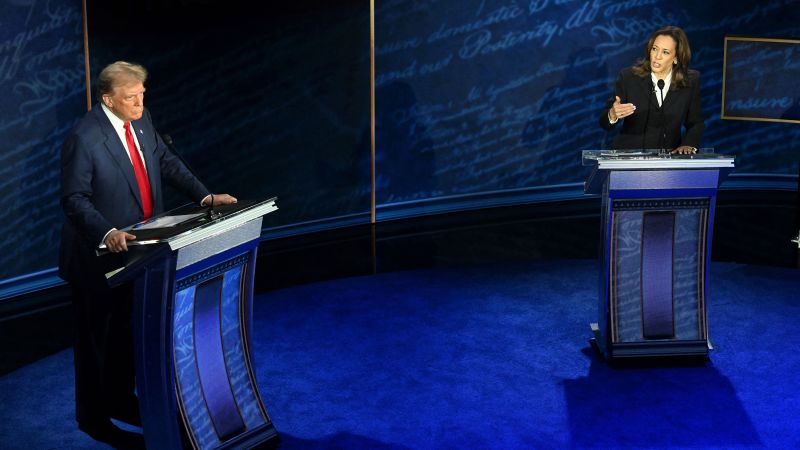Former President Donald Trump and Vice President Kamala Harris have both put forth economic policy agendas that are projected to add to the already growing budget deficit. The deficit, which occurs when a country spends more than it collects in revenue, is expected to worsen under the current status quo and potentially escalate further under the proposed policies of Trump and Harris. The United States is already deeply in debt, with publicly held federal debt nearly equivalent to the entire US economy at $28 trillion. Federal Reserve Chair Jerome Powell has expressed concerns about the need for elected officials to have a serious conversation about putting the federal government on a sustainable fiscal path. Despite the escalating deficit and debt levels, the issue was barely mentioned during the recent Trump-Harris presidential debate.
In past elections, candidates have addressed the issue of the budget deficit, with President Barack Obama emphasizing the need for adjustments to address living beyond the country’s means. However, recent candidates, including Trump and Harris, have not made reducing the deficit a priority in their economic proposals. The mounting deficit and debt levels pose significant risks, including increased borrowing costs, reduced funding for essential programs, and potential national security threats due to dependence on foreign countries for debt financing. Failure to address these issues could slow economic growth and lead to inflation. However, elected officials may be avoiding tough decisions about spending cuts and tax increases in favor of maintaining popular policies.
Political considerations and a desire to avoid unpopular measures may be driving the lack of attention to the budget deficit by current leaders. Both political parties are focused on advancing their own agendas, including tax cuts for Republicans and increased government spending for Democrats, without addressing the underlying fiscal challenges. Americans may have become desensitized to the risks of rising debt levels due to recent crises such as the Covid-19 pandemic and the Great Recession. However, it is essential for voters and leaders to recognize the importance of addressing the deficit to ensure sustainable economic growth and the long-term viability of social programs.
The escalating deficit and debt levels pose significant risks to the economy and national security, as well as potential challenges for everyday Americans, such as higher mortgage rates. Addressing the deficit requires tough choices about spending priorities and potential tax increases, which elected officials may be avoiding. Failure to address the deficit could lead to inflation and slower economic growth, as well as increased dependence on foreign countries for debt financing. Educating voters and leaders about the importance of reducing the deficit is crucial to ensuring a stable and sustainable fiscal path for the country.













